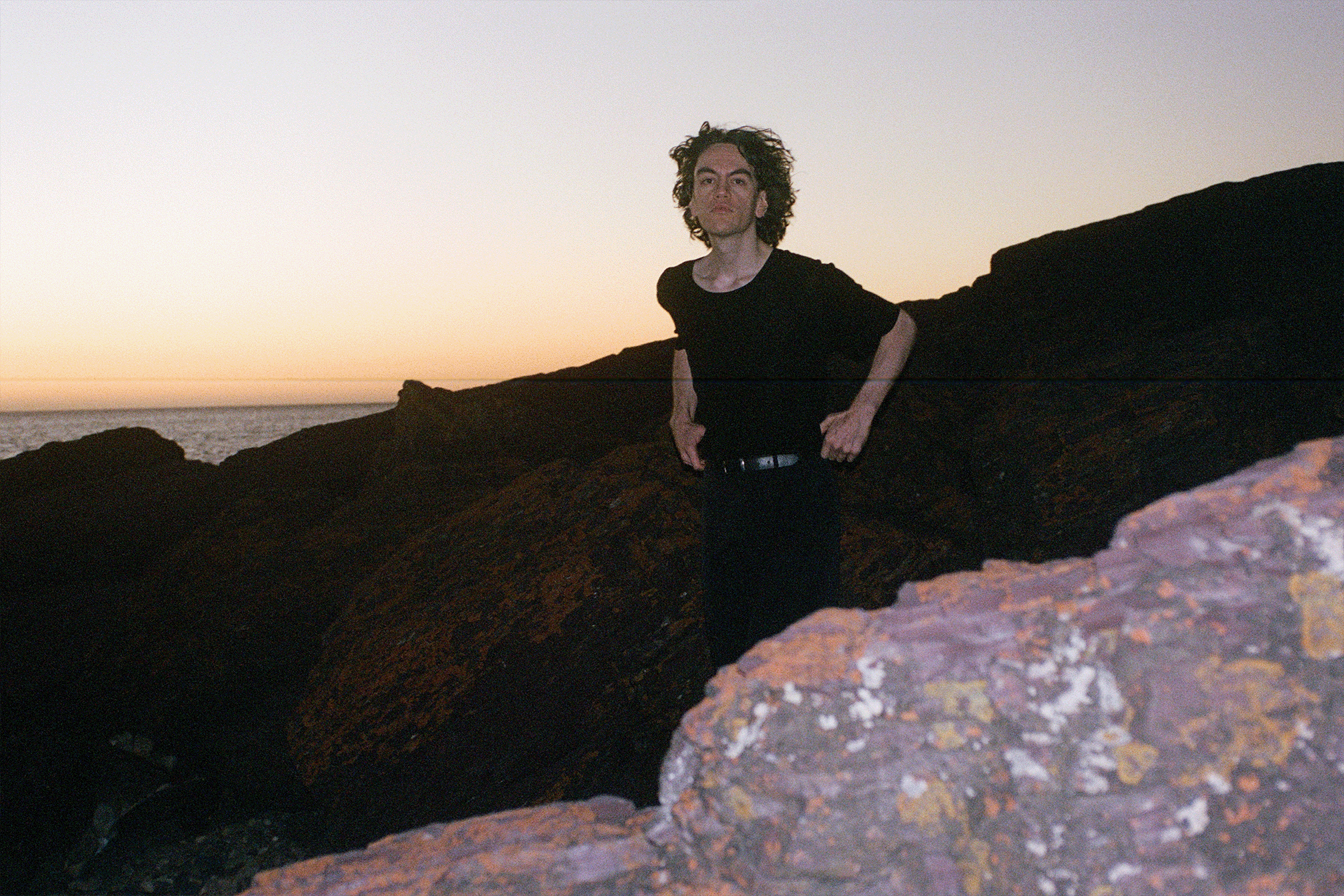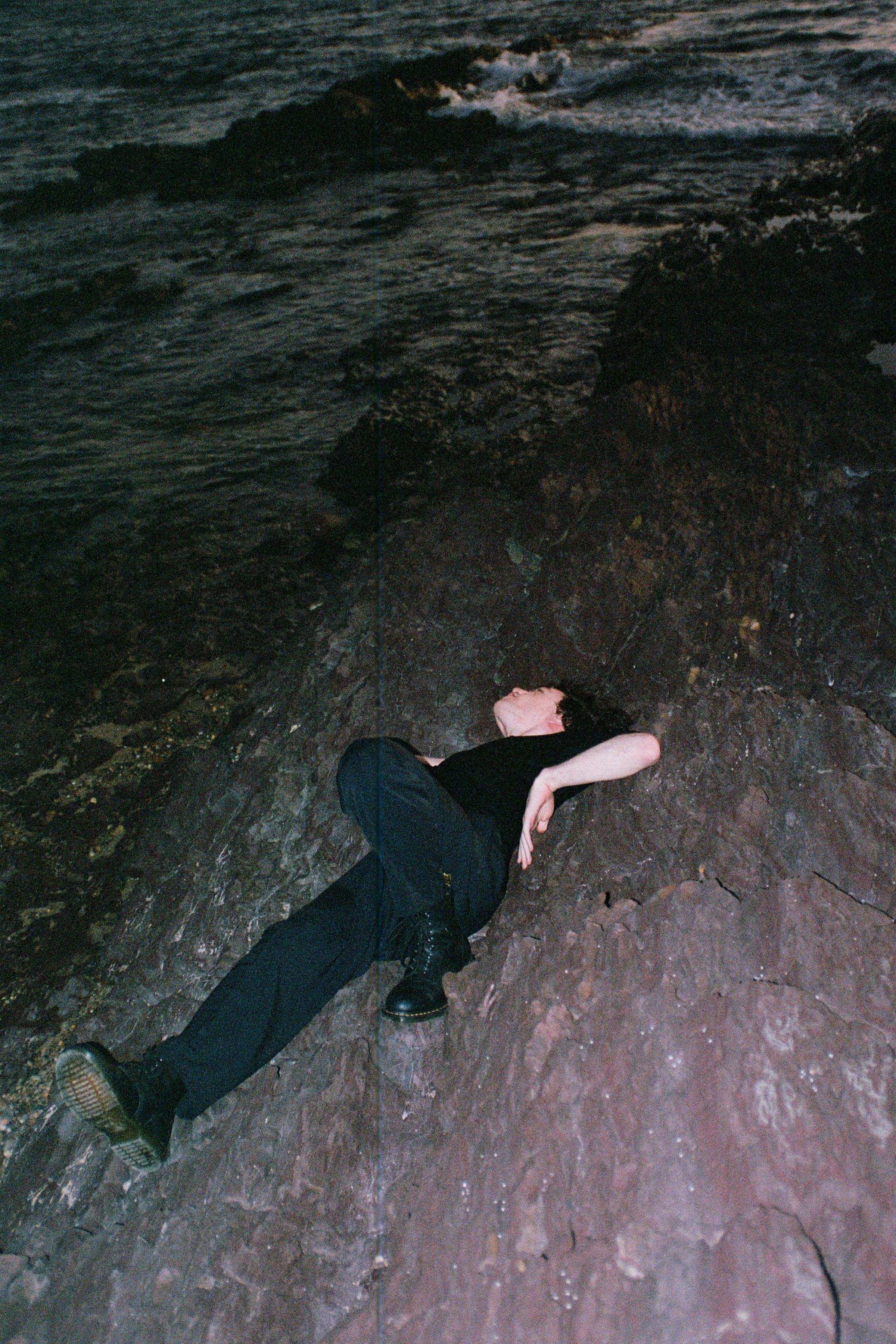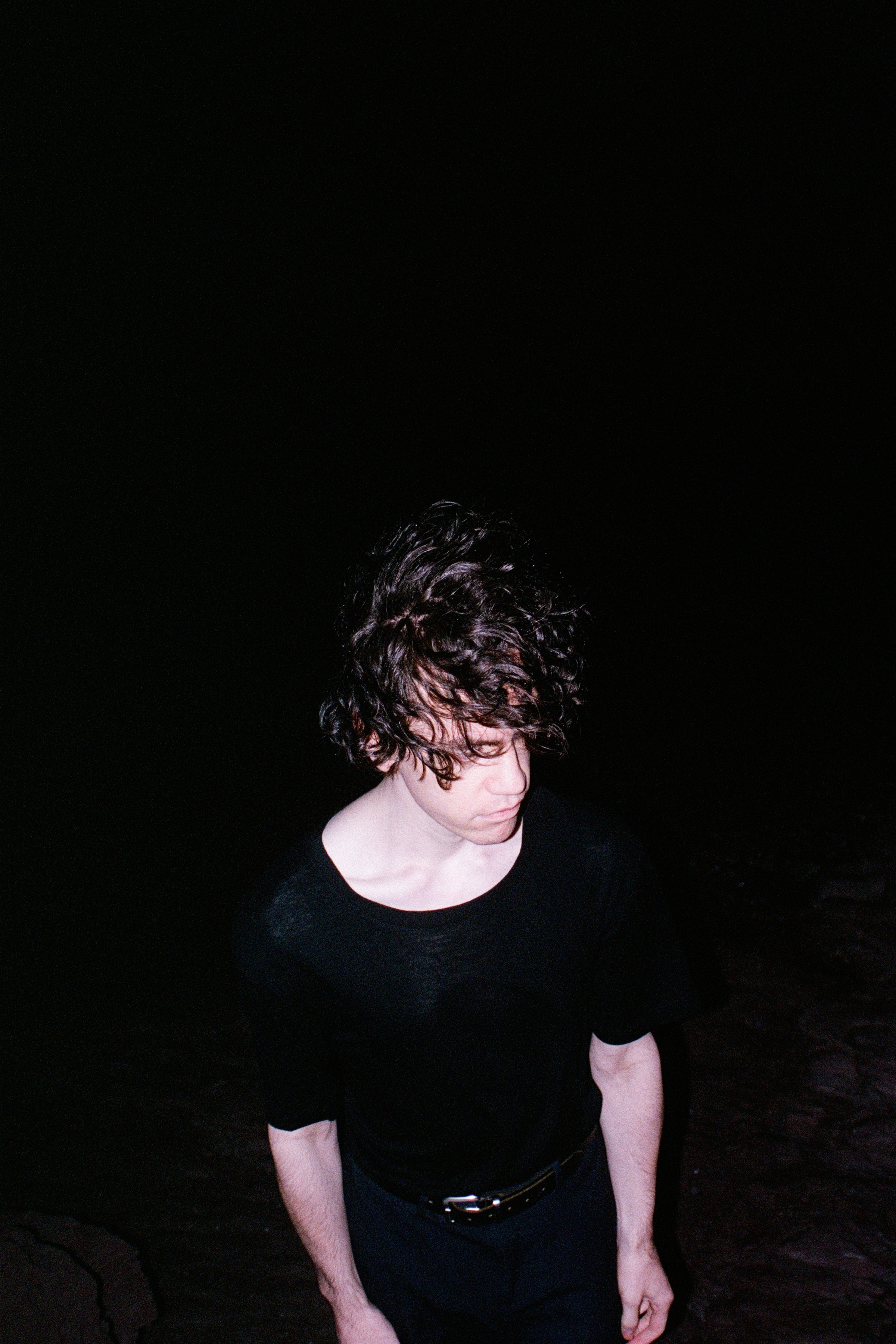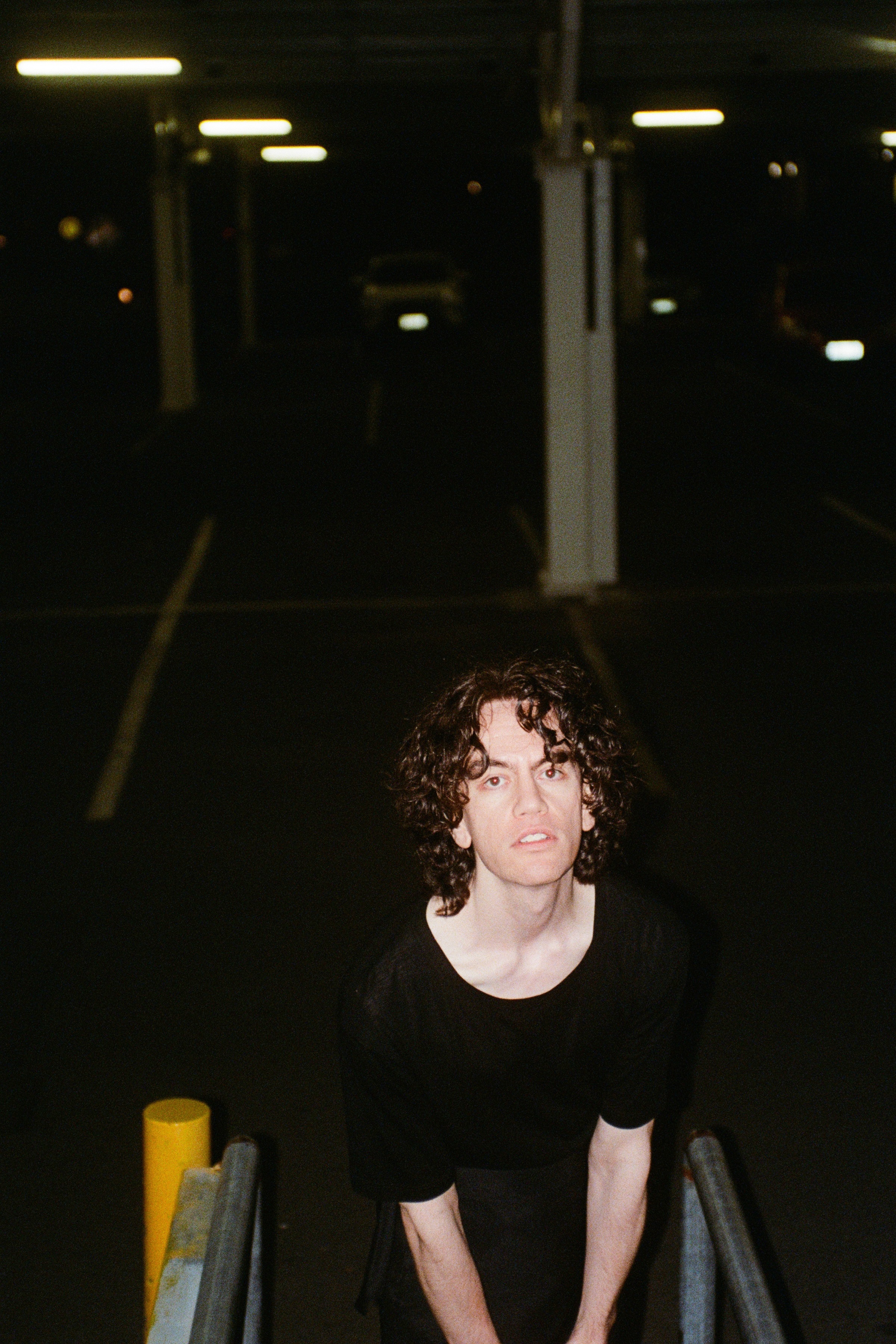 FEATURES
FEATURES
Lonelyspeck: "genre is a misunderstood concept"
To celebrate the release of his latest record 'Crown Of My Spirit', we sat down with Sione Teumohenga.
In 2025, the concept of ‘genre’ appears only to be relevant when tracing the influences of new music. In a climate where electronic music has never permeated music more, every genre from pop to hardcore and R&B is regularly borrowing and adjusting sounds, tempos and influences from dance and electronic music to take each of their sounds even further into the future.
Lonelyspeck is an artist who has consistently challenged the boundaries between genres across all of their work. Sione Teumohenga, a Tongan-Australian producer based in South Australia, has a unique ability to channel their ferocity and delicacy across not only their work but also those of artists across the world’s musical spectrum.
Co-writing for the likes of Daine, Bring Me The Horizon, Mallrat, Allday, Nick Ward, and Golden Vessel, Lonelyspeck’s influence is one of loud and yet entirely refined chaos.
Sione’s latest record, ‘Crown Of My Spirit’, was released last month to wide appraisal, incorporating all of the experiences across many of these collaborations to produce a work which sits at the forefront of modern electronic music. Their voice, instrumentation and odes to their Tongan heritage sit as an organic counterpoint to the abrasive, deeply technical inorganic sounds that push the release into uncharted territory for an Australian artist.
Lonelyspeck is no stranger to this kind of experimentation, and it shows. The record is a highly anticipated one by fans and critics alike, as their first solo offering in over five years.
Following the release, Mixmag ANZ sat down with Sione to better understand the process behind the release and how they see it fitting into the world’s current electronic landscape.

Q: Sione, thanks so much for taking the time to speak with us. How does it feel to finally have ‘Crown of My Spirit’ out into the world?
LONELYSPECK: Thanks so much for having me! It’s a big relief, like my head is clear after having to sit with this body of work for so long. The album was technically done two whole years ago but it didn’t feel real until now.
Q: It’s been a long time since you released a work of this size; your last album, ‘Abyssal Body’, came out in 2019. What do you think you’ve learned since that project that’s influenced this latest record? Whether about yourself, the world at large, or musically?
LONELYSPECK: I think on ‘Abyssal’ I was dealing with identity issues by reaching for an idealised version of myself, but while writing ‘Crown’ I wanted to be more grounded and find harmony within all the ups and downs and contradictions.
I suppose it’s part of a bigger journey I’ve had in learning to understand my experience through a broader lens than just identity and mental health, like actually seeing how the world around me shapes me and how I’m able to shape it in return.
Q: You’ve woven in a lot of your Tongan heritage into this record. On ‘Fossil’, for example, the lead melody is by the ‘fangufangu’, a traditional Tongan nose flute. Why was it essential to ensure that this had a home on this record?
LONELYSPECK: Becoming more in touch with my heritage over time, and connecting with a lot of other Pacific artists, I think these influences have just naturally seeped into my process. The fangufangu sample is a basic example of that, but for me, what’s most important is being a student of the deeper principles from our culture and artistry and applying them in the way I work.
To me, it’s a way of staying in touch with my culture while staying true to my experience in the modern diaspora.
Q: What do you think ‘Crown of My Spirit’ does to honour or challenge cultural conversations that exist for you as a Tongan Australian?
LONELYSPECK: I hope to send the message that islander artists don’t have to draw from Eurocentric conventions to be serious artists, and we don’t have to rely on stereotypes and cliches to make genuine Pacific art. That conversation has already made so much progress since I first got into making music.
There’s a whole new generation of Pasifika artists making really progressive and ambitious work, and it’s so heartening to me.

Q: On ‘Fossil’, you dive into the idea of masculinity as a coercive and indoctrinary force. Why do you feel that exploring themes like this is so important?
LONELYSPECK: It just makes me sad and angry seeing how these rules of masculinity are used to beat the humanity out of boys.
For a while, when I was younger, I hated the whole idea of masculinity because of that. But over time I’ve come to realise that there can be positive expressions of it that aren’t tied up in this violent patriarchal thing. I realised I don’t have to reject the masculine parts of myself to honour the feminine. The song ‘Amulet’ is about that other side of the relationship.
Q: There’s an incredible meeting point between organic and inorganic across this release. Whether it’s in the art or accompanying videos, or even just your voice, sometimes modulated, sometimes not, alongside instruments, sometimes ‘real’, sometimes not. Are you purposefully striking a delicate balance between these elements?
LONELYSPECK: I don’t really think about it as organic vs inorganic, it’s more that I’m just always chasing a certain sense of texture and space. I prefer working with organic sounds, but I also like to embrace the artefacts that come out of using digital tools, so it’s really just a byproduct of my workflow.
Q: In a record which sounds so experimental, detailed and future-facing, there’s an undeniable humanity which sings through. Was there ever a point where you worried that human touch may not translate?
LONELYSPECK: All I can do about that is try to make something honest, and I never really doubted that I was doing that.
But I’m really glad that the emotion comes through as the central thing.

Q: Why do you think that bringing a lot more ‘live’ instrumentation into this record was so important?
LONELYSPECK: I think I was becoming more confident about incorporating a variety of instrumentation this time, but if anything, I think there could’ve been more. There’s guitar obviously, and then there’s some live percussion by Zsa Zsa Gyulay on ‘Estuary’, which I love.
I’d like to collaborate more with other instrumentalists. If I had an unlimited budget, my music would be 100% live instrumentation with sound design recorded on a Foley stage.
Q: You’ve worked regularly with a huge list of collaborators, including Daine, Bring Me The Horizon, Mallrat, Allday, Nick Ward, and Golden Vessel. What lessons have you taken from those opportunities and brought back into your music?
LONELYSPECK: It’s made me less precious and more disciplined. I used to find collaboration hard because I thought I couldn’t really be myself, and I wanted to keep all my good ideas to myself. But after a while, the right collaborations started coming to me, which I think is a testament to the time I spent refining my own voice as a producer.
When you work with people you believe in and who believe in you, you just want to give your best to the project, and it takes the ego out.
Q: Your only listed collaborator on the album is Western Sydney rapper BAYANG (tha Bushranger). How did you two come to work together?
LONELYSPECK: We’d been in touch a little bit online, and I liked his early stuff with Sevy. And I’d made this song that I wanted a rap verse on, but I had no idea who could fit this heavily symbolic, introspective vibe. But then I heard Bayang’s verse on ‘Undead’ by Marcus Whale, and I just thought it was so beautiful and genius how he incorporated all this literary and classical stuff into this hard, percussive flow. So I asked him if he’d be down to jump on the track I had, which is what became ‘Drawing Flesh From Stone’.
Q: The record dives across so many different ‘genres’. On ‘Amulet’, for example, from one moment we go from a metalcore lick to a trancey 4/4 kick, culminating in a big set of breaks. Did you set out to involve so many different musical influences on the album?
LONELYSPECK: One of the only real creative limitations I put on Lonelyspeck is that I try to keep things in the pop song format, whatever that happens to mean in the current era. Beyond that, I just do whatever is exciting to me, which is usually a bunch of incongruous things. I don’t want to be gimmicky about jumping between genres, so I try to integrate them in a way that hopefully blends into one cohesive sound.
Q: Do you think ‘genres’ even matter anymore?
LONELYSPECK: Yes, actually... I think genre is a misunderstood concept. As an artist, I definitely understand not wanting to be pigeonholed. But as someone who is interested in culture and history, I see genre as an important way of documenting the evolution of music styles and communities.
Q: We’re at a point where so many genres are splitting and converging. What do you think this says about the way we consume and relate to music?
LONELYSPECK: It’s been happening forever, but the world is more urbanised and interconnected than ever. I think genres are basically representations of music communities, so it’s indicative of how much crossover there is between different scenes now due to the internet. But things like welfare and infrastructure also affect how communities can form, so I think there’s a lot of push and pull in our current era of crises and austerity.
Q: Now that it’s done, what have you been doing to celebrate?
LONELYSPECK: I think my way of celebrating is just nerding out on more projects. There’s more I want to share, but I’m also just keen to get onto the next thing now. I feel very open and kinda have a feeling of ambition that I haven’t felt since early in my career. So far this year, I’ve scored a dance work, toured as a session guitarist for Daine and co-directed a short film for another project. I have all these ideas and hobby projects that may or may not become legit things. Anything could happen.
-
'Crown of My Spirit' is available to stream & purchase via Lonelyspeck's Bandcamp.
-
Jack Colquhoun is Mixmag ANZ's Managing Editor, find him on Instagram.


